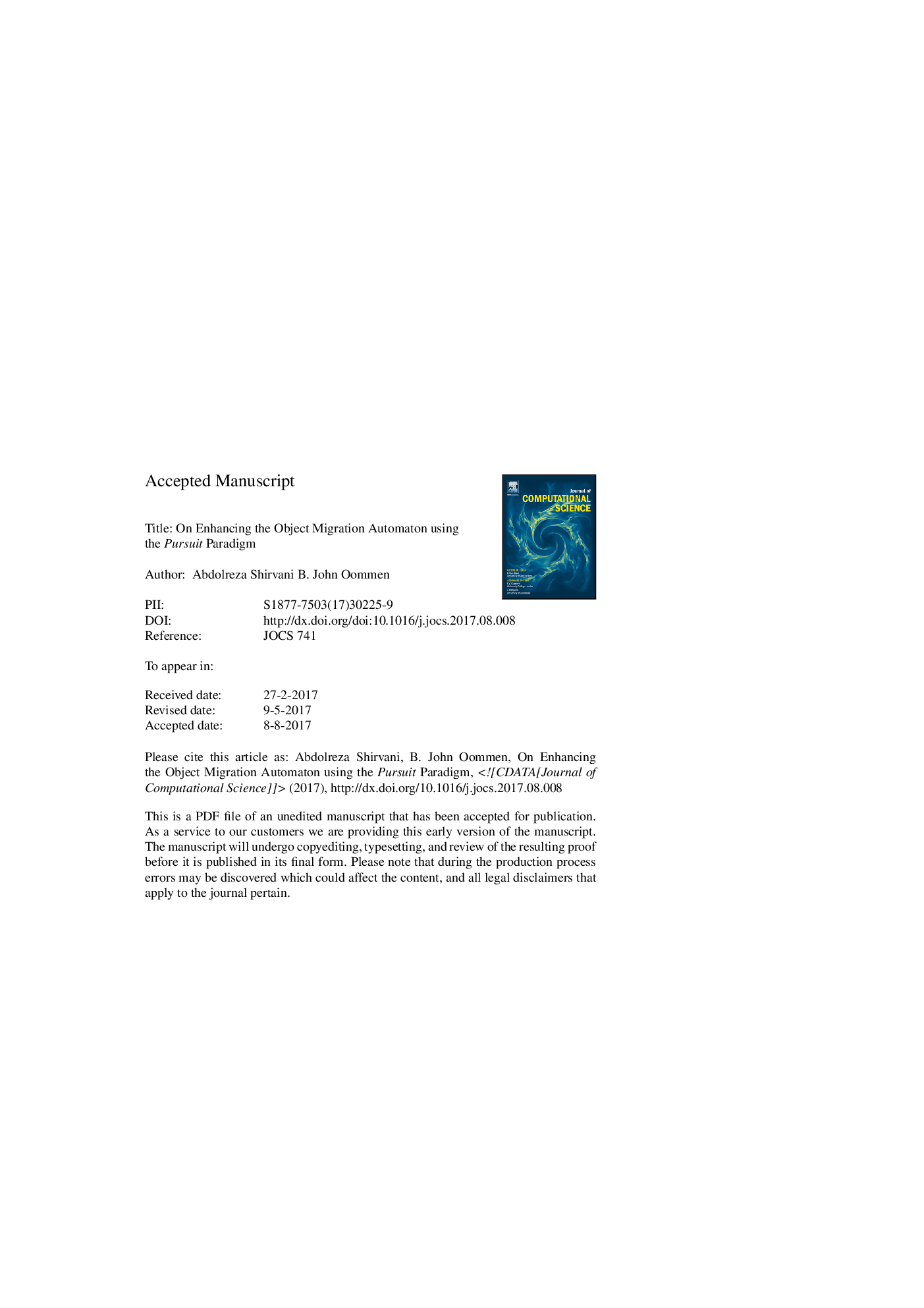| کد مقاله | کد نشریه | سال انتشار | مقاله انگلیسی | نسخه تمام متن |
|---|---|---|---|---|
| 6874463 | 1441161 | 2018 | 30 صفحه PDF | دانلود رایگان |
عنوان انگلیسی مقاله ISI
On enhancing the object migration automaton using the Pursuit paradigm
ترجمه فارسی عنوان
در ارتقاء اتوماتای مهاجرت شی با استفاده از پارادایم پیگیری
دانلود مقاله + سفارش ترجمه
دانلود مقاله ISI انگلیسی
رایگان برای ایرانیان
کلمات کلیدی
پارتیشن بندی شی، اتوماتای یادگیری، خودکار مهاجرت شی، یادگیری مبتنی بر تقسیم بندی،
موضوعات مرتبط
مهندسی و علوم پایه
مهندسی کامپیوتر
نظریه محاسباتی و ریاضیات
چکیده انگلیسی
One of the most difficult problems that is all-pervasive in computing is that of partitioning. It has applications in the partitioning of databases into relations, the realization of the relations themselves into sub-relations based on the partitioning of the attributes, the assignment of processes to processors, graph partitioning, and the task assignment problem, etc. The problem is known to be NP-hard. The benchmark solution for this for the Equi-Partitioning Problem (EPP) has involved the classic field of Learning Automata (LA), and the corresponding algorithm, the Object Migrating Automata (OMA) has been used in all of these application domains. While the OMA is a fixed structure machine, it does not incorporate the Pursuit concept that has, recently, significantly enhanced the field of LA. In this paper, we pioneer the incorporation of the Pursuit concept into the OMA. We do this by a non-intuitive paradigm, namely that of removing (or discarding) from the query stream, queries that could be counter-productive. This can be perceived as a filtering agent triggered by a pursuit-based module. The resulting machine, referred to as the Pursuit OMA (POMA), has been rigorously tested in all the standard benchmark environments. Indeed, in certain extreme environments it is almost ten times faster than the original OMA reported in the legacy papers.1 The application of the POMA to these application domains is extremely promising.
ناشر
Database: Elsevier - ScienceDirect (ساینس دایرکت)
Journal: Journal of Computational Science - Volume 24, January 2018, Pages 329-342
Journal: Journal of Computational Science - Volume 24, January 2018, Pages 329-342
نویسندگان
Abdolreza Shirvani, B. John Oommen,
